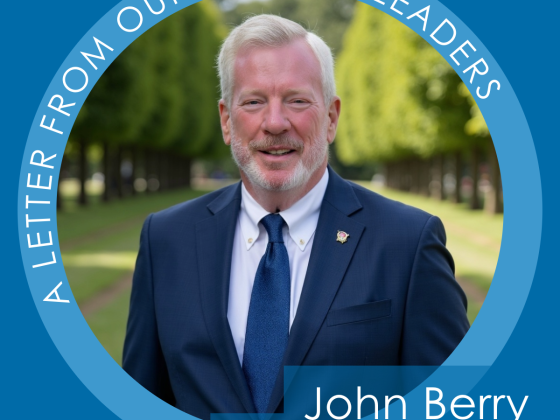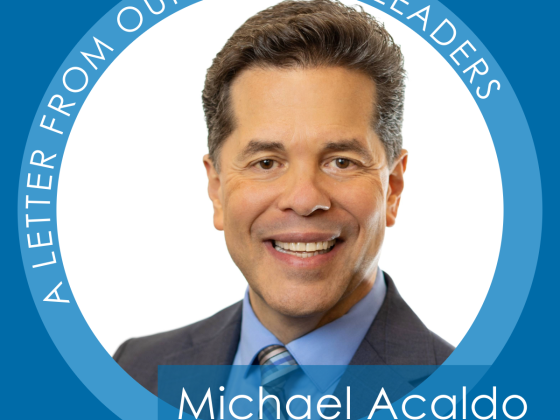It is difficult for us to process the recurring news about mass shootings whether we try to do so as Americans, Catholics, or as family members. As Vincentians, however, perhaps we can add constructively to the conversation and to the question of “What can we do?”
This column won’t address the Second Amendment or gun control issues. Rather, as Vincentians we focus our prayers and services on people. What do we know, and what can we do?
We know that poor health (physical, and especially mental), leads to unhealthy situations including marriage challenges, rage issues, workplace violence, and child abuse. Many of us act differently when we are in pain, even if from a simple headache. Chronic pain often leads to worse choices and outcomes. Some pain leads to depression, hopelessness, and “acting out” in many forms. In our work with families, we can see more readily than most how deficiencies of income, health, medicine, and general medical care intersect, often in potentially dangerous ways. We know that some of our friends in need must make a choice between buying food or medicine. And since food is often for one’s entire family, food wins. If the medicine is for a mental or psychological condition that may not even manifest in physical pain, it can be an easier if more dangerous choice.
Some of our Councils have started free and least-cost pharmacies to help. With such support, a person in need has more money available for other basic needs. Some folks can’t even afford a doctor visit co-pay, so anything we can do is helpful in daily-life terms. Other nonprofits have initiated a prescription program in concert with their returning citizens work, wherein someone gets diagnosed and prescribed a mail order medicine before prison release and it carries forward when they are home. Imagine the mental health issues alone that are avoided with this program for a vulnerable returning citizen!
We look at not only emergency needs but also systemic change solutions for our neighbors in need to mitigate or even exit their poverty situation. We may need a more strategic look at how mental health services, medicines assistance, and general healthcare intersect with other poverty challenges. Vincentians don’t need to be the medical providers, but we can help organize the dollars, transportation, and scheduling and/or arranging the visits needed. All of this will require collaboration with public health offices, healthcare providers, funders, pharmacies, and other important players. We are pretty good at this in other areas of our work, notably food pantries and utility payments. Consider this another stream of basic needs we can contribute toward for those we serve.
We won’t know if helping someone manage their money to afford both healthcare and proper nutrition will result in positive societal outcomes. What we already know is that any help we can provide against the root causes of poverty is good help, and that no act of charity is foreign to the Society of St. Vincent de Paul.
Even in such pain and tragedy as the national news brings us all too often, God is trying to tell us something. Those we serve have more than financial needs. Our Home Visits provide social interactions which, even by themselves, support mental health by having trusted friends to talk to in difficult times. We have such a unique perspective of being with people and families in need where they live. While we are not trained to diagnose, we can observe and listen, and then make services connections and offers to help with healthcare costs.
In our Council and Conference meetings, let’s broaden our discussion about how to help our neighbors and explore how we might support, and even lead, community health access and supports. In discernment and prayer, let’s partner as needed to do more. If needed services already exist in our community, we can at least advertise and refer.
All of this may never save one single life from a senseless shooting. Yet how many more shall we learn about before we ask if there is something, anything, we can do as Vincentians to help prevent this?
Yours in Christ,
Dave Barringer
CEO



Or could we recognize that weapons of war are being used to kill our children, and that our elected officials are doing nothing. Which if you think about it is depressing. The messaging of those that oppose common sense gun control is that we have a mental health problem. Your letter echoes that messaging. Truth is something that we are called to recognize and act upon. The truth is that mental illness is a huge concern in this country as it is for all the developed countries in the Western world. The one thing that makes the United States unique is the amount of guns that our citizens possess, and in particular the amount of assault rifles (AR-15s). No other country in the West allows its citizens to possess that weapon of war. We are the only one, and the one in which this problem of mass shootings at schools is a chronic problem. To write about this issue and not talk about gun control is not adding to the conversation in a constructive manner, and makes processing this issue more difficult. I think we should speak the truth on this issue.